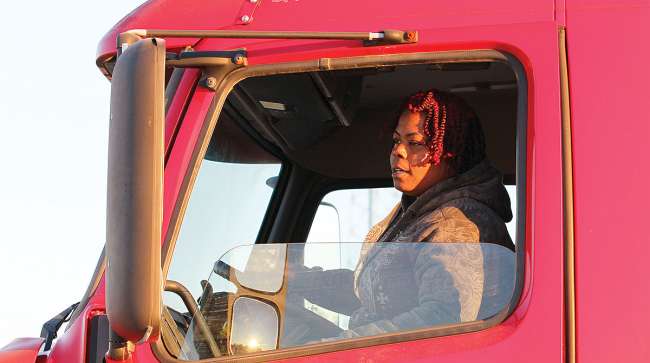Senior Reporter
Truck Drivers, Logistics Personnel Deemed ‘Essential’ in Security Memo

[Stay on top of transportation news: Get TTNews in your inbox.]
An updated guidance memo issued by the director of the Cybersecurity and Infrastructure Security Agency clearly identifies truck drivers and related logistics personnel as “essential employees” helping the nation attempt to slow the spread of the coronavirus.
“If you work in a critical infrastructure industry, as defined by the Department of Homeland Security, such as health care services and pharmaceutical and food supply, you have a special responsibility to maintain your normal work schedule,” said the memo, written by Christopher Krebs.
The list identifies “essential critical infrastructure workers” as those who conduct a range of operations and services that are essential to continued critical infrastructure viability, including staffing operations centers, maintaining and repairing critical infrastructure, operating call centers, working construction, and performing management functions, among others.
Also included are truck drivers who haul hazardous and waste materials to support critical infrastructure, capabilities, functions and services. The memo further stated that critical employees include those supporting or enabling transportation functions, including dispatchers, maintenance and repair technicians, warehouse workers, truck stop and rest area workers, and workers who maintain and inspect infrastructure.
“This is pretty much a national security issue stating that stakeholders in the transportation industry and other essential personnel should keep working, that there are no requirements for them to keep working at home. We need them working,” said Ross Froat, director of technology and engineering policy for American Trucking Associations. “It classifies them a ‘Don’t bother them.’ They’re out and about working.”
The list of essential workers also ranges from personnel in emergency management, law enforcement and fire personnel to those in emergency management systems, and front-line and management emergency medical technicians.
“The industries they support represent, but are not necessarily limited to, medical and health care, telecommunications, information technology systems, defense, food and agriculture, transportation and logistics, energy, water and wastewater, law enforcement and public works,” the Krebs memo said of the list of workers. “Promoting the ability of such workers to continue to work during periods of community restriction, access management, social distancing or closure orders/directives is crucial to community resilience and continuity of essential functions.”
Krebs added, “The list can also inform critical infrastructure community decision-making to determine the sectors, subsectors, segments or critical functions that should continue normal operations, appropriately modified to account for Centers for Disease Control workforce and customer protection guidance.”
Want more news? Listen to today's daily briefing:




